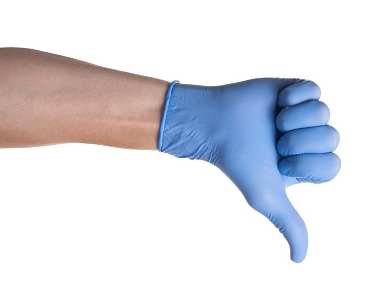Hotties win again, heart attack silver lining, drink the mule quickly, and more
23 Feb 2022
Posted by Andrew Kantor
The pandemic is sooo bad…
How bad is it? It’s so bad that it lowered the sex ratio of births — more girls were born than boys. This isn’t unheard of. “After unexpected stressful events, such as the death of a highly popular public figure, terrorist attacks, and large-scale riots” the ratio will go down, and South African researchers found that held true for the pandemic as well.
It’s coming….
The 2022 Georgia Pharmacy Convention — the biggest, best, and most exciting gathering of Georgia’s pharmacy professionals of the year — chock full of the latest CE courses, awesome networking opportunities, one-of-a-kind events, and all the fun Amelia Island has to offer.
Mark thy calendars: June 9-12, 2022. Registration opens March 1 — we’ll see you at the beach!

FTC won’t probe PBMs
After an afternoon of hearing from various and sundry, the Federal Trade Commission decided (by a 2-2 vote) not to begin a probe of PBMs and whether and how they violate anti-trust laws.
Just three PBMs control nearly 80% of the market, and they are now affiliated with health insurers, their own pharmacies, doctor’s offices and other health-care entities to create […] both horizontal and vertical monopolies.
The good news: The commission members who voted against probing the agency said they aren’t against it, they just needed a more comprehensive, data-centric proposal.

Antidepressants: 2 > 1
If an SSRI or SNRI isn’t helping treat someone’s depression, adding an alpha-2 autoreceptor antagonist (e.g., mirtazapine) might do the trick. That’s what German researchers concluded after studying the research.
The combination therapy, they concluded is “a potent treatment option, associated with superior outcomes relative to monotherapy,” while not having notable side effects.
Adding bupropion, though, didn’t seem to make a difference, although they think it requires some more study.
Hey good lookin’
Buzz readers are among the best-looking people around, and that’s good news. They (that is, you) are likely to have a better-working immune system. That’s what researchers at Texas Christian University after “examin[ing] the links between physical appearance, health, and immune function.”
What do our good looks have to do with the immune system? Most likely it’s that people have always been attracted to those who look healthy; i.e., health is attractive, and evolution did the rest.
[F]acial attractiveness may provide insights into one’s immune function, particularly as it relates to one’s ability to efficiently combat (primarily) bacterial threats. Additionally, for men, facial attractiveness may also provide cues to their ability to efficiently manage viral threats and neoplastic growth.
Chutzpah denied
Smokers who were considering suing Pfizer over potential carcinogens in Chantix (which the company recalled) had that suit dismissed by a federal judge Wednesday.
The dismissal came in part because — seriously — neither of the two women leading the suit suffered any health consequences. They simply said that the product’s label was false or misleading because it didn’t list the carcinogen, N-nitroso-varenicline.
Mom’s vaccine protects baby
Here’s an easy way mothers can protect their babies from Covid-19: Get vaccinated before Junior is born. It turns out that being vaccinated during pregnancy (the later the better), significantly reduces the baby’s risk of contracting Covid-19.
The researchers found that the effectiveness of maternal vaccination during pregnancy was 61 percent against COVID-19 hospitalization in infants aged younger than 6 months. The effectiveness of a completed two-dose COVID-19 vaccination series was 32 percent early in pregnancy (first 20 weeks), although the confidence intervals were wide, and it was 80 percent later in pregnancy (21 weeks through 14 days before delivery).
There’s probably a better way
Here’s one way to (potentially) reduce your risk of Parkinson’s: Have a heart attack.
Although previous studies found that a heart attack increases the risk of stroke and vascular dementia, after reviewing the records of 182,000 patients, those shifty Danes found that, surprisingly, “there was a 20% lower risk of Parkinson’s disease among people who had a heart attack; and a 28% lower risk of secondary parkinsonism among those who had a heart attack.”
Why is that? They speculate it might be because of, of all things, cigarettes and bad diet.
In general, more heart attack patients smoke and have elevated cholesterol, either of which may explain the slightly reduced risk of Parkinson’s disease among heart attack survivors.
Cholera vaccine 2.0
If you have mice, one of your biggest worries — besides hawks — is probably cholera. You can’t just remove the handle from a well pump*, but, thanks to an international group of scientists, you might soon have a good vaccine.
There already is a cholera vaccine, sort of. In reality, it doesn’t work all that well, offering “the lowest level and duration of protection in young children.” The new one, though, which uses a polysaccharide attached to a virus-like particle (as opposed to killed or weakened V. cholerae bacteria) “was found to generate long-lasting antibody responses.”
* Do you know nothing? John Snow?
Today’s odd science story
There’s no doubting the greatness that is the Moscow Mule, served properly in a copper mug. But new research says you need to drink it quickly. Not because that’s what they would do in Moscow, but because copper leaches into the drink thanks to a chemical reaction with the ginger beer it contains.
In a little under half an hour, the copper levels rise higher than the safety standard set for drinking water.
The authors of the study admit, though, that, “Acute copper toxicity is very unlikely. For that, you would need to drink 30 Moscow mules in a 24-hour period.”


